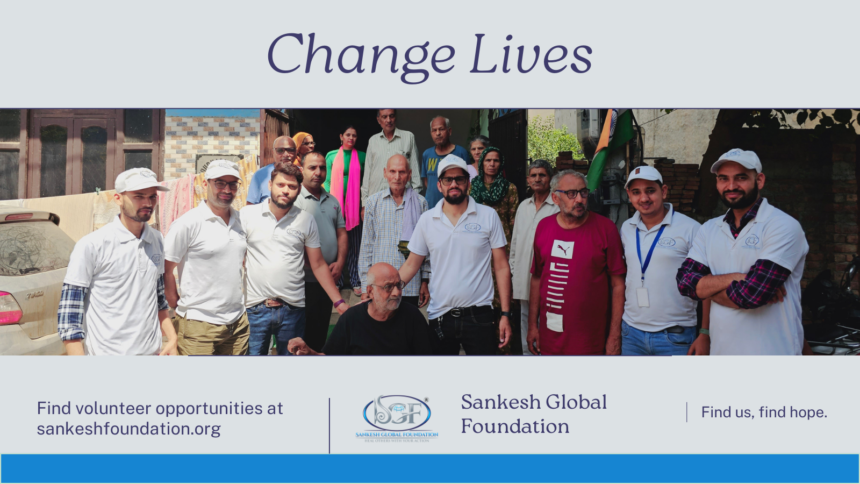In a country as diverse and populous as India, addressing the complex challenges faced by its communities requires a collective effort. NGO organizations in India play a crucial role in bridging gaps, supporting vulnerable populations, and driving grassroots development initiatives. In this article, we will explore the invaluable work carried out by these organizations and the impact they have on building stronger communities.
The Charitable Landscape in India
India is home to a vibrant and diverse array of charity organizations, ranging from small, local nonprofits to well-established national and international NGOs. These organizations work tirelessly across a wide spectrum of causes, including education, healthcare, poverty alleviation, women’s empowerment, and environmental conservation. Their efforts are crucial in a country where socio-economic disparities are stark and where millions face daily challenges related to basic needs.
Addressing Poverty and Economic Disparities
NGO organizations in India play a significant role in addressing the pressing issue of poverty. They provide vital support to marginalized communities through initiatives like microfinance programs, skills training, and livelihood generation activities. These efforts not only alleviate financial burdens but also empower individuals to become self-sufficient and contribute to their communities’ economic development.
Some organizations focus on eradicating classroom hunger by providing mid-day meals to school children. By addressing the issue of malnutrition and encouraging regular school attendance, they contribute to breaking the cycle of poverty for many young learners.
Empowering Women and Gender Equality
Empowering women is a cornerstone of building stronger communities. Many NGO organizations in India are committed to advancing gender equality by offering women skill development, leadership training, and resources to start their own businesses. These initiatives not only uplift women but also contribute to the well-being of entire families.
Access to Quality Education
Education is a fundamental right, yet many children in India lack access to quality schooling. NGOs work to bridge this gap by running education programs that focus on improving literacy and numeracy among underprivileged children. These programs often target remote and marginalized communities where educational resources are scarce.
NGOs in India leverages innovative teaching methods to ensure that children receive a strong educational foundation. Their work has had a profound impact, not only on individual students but also on the overall development of communities.
Healthcare Initiatives
Access to healthcare is a critical component of community development. In India, various charity organizations focus on healthcare initiatives, providing medical services, healthcare education, and awareness programs. These initiatives aim to improve the overall well-being of communities, particularly in rural and underserved areas.
Environmental Conservation
As India grapples with environmental challenges, charity organizations are increasingly focusing on conservation efforts. These organizations work to preserve ecosystems, promote sustainable agriculture, and raise awareness about environmental issues.
Disaster Relief and Resilience Building
India is susceptible to various natural disasters, including floods, earthquakes, and cyclones. Charity organizations often play a vital role in disaster response, providing immediate relief and long-term support for affected communities. They help rebuild infrastructure, restore livelihoods, and strengthen the resilience of communities to future disasters.
The Role of Charity Organizations in Strengthening Communities
The impact of NGO organizations in India goes beyond their specific causes. They promote social cohesion, inclusivity, and community participation. Their work often results in improved living standards, greater access to opportunities, and enhanced overall well-being.
These organizations encourage a culture of giving and rallying support from donors, volunteers, and the public at large. This collective effort creates a positive ripple effect, fostering a sense of responsibility toward community development.
Challenges and the Path Forward
Despite their invaluable contributions, NGO organizations in India face numerous challenges. Financial constraints, administrative hurdles, and scaling up operations are common obstacles. Additionally, ensuring transparency and accountability is crucial to maintaining public trust and garnering support.
As India continues to develop, charity organizations must adapt to changing needs and employ innovative strategies. Collaborations with the government, private sector, and international partners can amplify their impact.
Conclusion
In conclusion, NGO organizations in India are unsung heroes working relentlessly to build stronger communities. They tackle issues that impact the most vulnerable and marginalized populations and provide the necessary support for holistic development. Their dedication, innovation, and impact underscore the importance of their work in shaping a brighter future for India. As we recognize their invaluable contributions, it’s imperative to support and celebrate their efforts in creating a more equitable and prosperous society for all.
Among these remarkable organizations, “The Sankesh Global Foundation” stands out in the landscape of NGO organizations in India. Focused on education, healthcare, and livelihood development, they are transforming lives and strengthening communities. By addressing fundamental challenges, particularly in access to quality education and healthcare, “Sankesh Global Foundation” embodies the spirit and dedication of India’s charitable sector. Their work exemplifies the impact that can be achieved in building stronger and more resilient communities.

